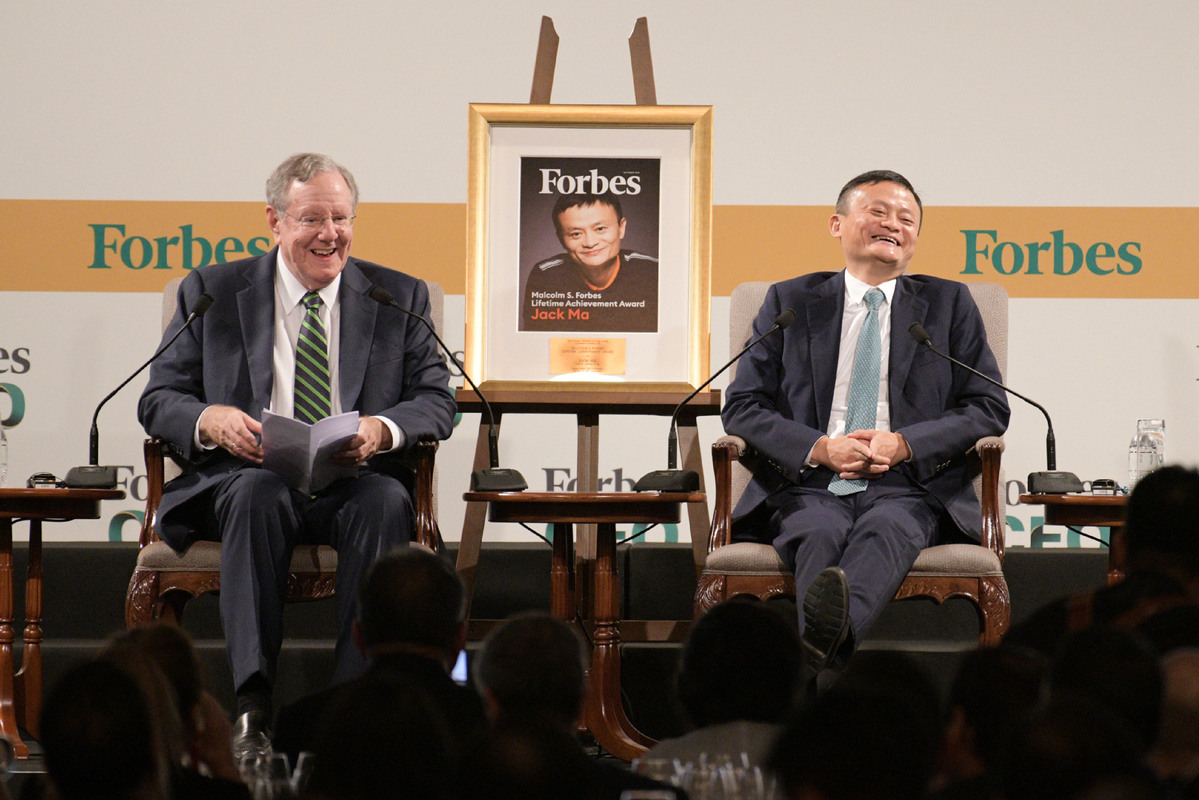China's Jack Ma to eye education, entrepreneurs and Africa after stepping down from Alibaba


SINGAPORE - Alibaba founder Jack Ma said that his biggest mission in the coming future will be to look at ways at how education can be done differently and to empower young entrepreneurs in Africa, in his role as the founder of the Jack Ma Foundation.
Ma was speaking at a dialogue with Steve Forbes, chairman and editor-in-chief of Forbes Media, at the high-profile Forbes Global CEO Conference 2019 held at the Shangri-La Hotel Singapore Tuesday night.
Last month, Jack Ma officially stepped down as group chairman of Alibaba, handing over the position to the company CEO Daniel Zhang. The retired business magnate, who initially began his career as a teacher, said he would be spending more time and energy on education, philanthropy and environmental protection.
Ma said the current education system still reinforces the old, industrial-period style of education, where children passively receive the knowledge in the classroom. Instead, the reality is that many young children are getting their knowledge through the Internet, while machine learning and artificial intelligence (AI) can process the information, memorize and calculate faster and better than human beings.
In order to survive in the AI period, a lot more can be done to revamp the education to change the type and way content is taught, and for children to be independent, critical thinkers who are innovative and creative, said Ma.
"You never learn wisdom from the classroom. Wisdom, you only learn through a tough life ... In the classroom, you only learn about knowledge, but life is about experience," said Ma, who added that he will spend the next year "thinking it through" and visiting more countries and schools to study the different models.
Outlining his vision, Ma said that beyond subjects like maths and physics, other subjects like music, painting, dancing and sports are equally important as they teach people how to be artists, to use their "heart", "imagination" and to know the rhythm. "This is the human knowledge ... and I want more people to do more things on that," he said.
Another important aspect is to teach young entrepreneurs to learn how companies fail.
Explaining the reason why he gives case studies of failed or bankrupt companies to his staff, Ma said, "When they learn too much (about success stories), they think they can easily succeed. But going into business is like going into the battlefield ... only those who survive win."
"So when you learn the failure cases, you know how to face these mistakes, how to solve it and challenge it. This is wisdom and this is what we should teach our kids."



































